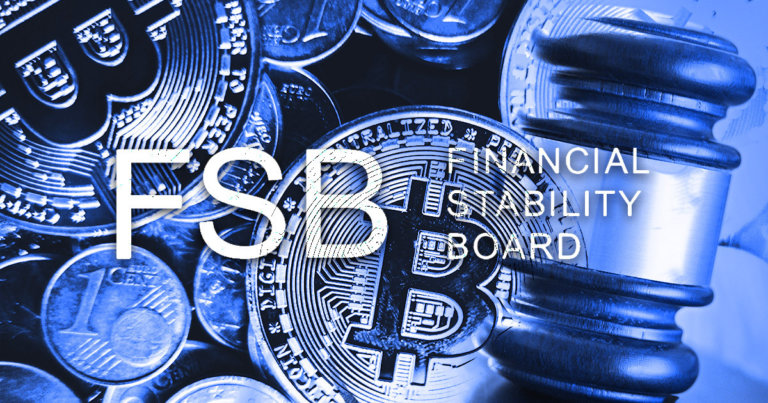 FSB to submit crypto and stablecoin regulation recommendations in October
FSB to submit crypto and stablecoin regulation recommendations in October FSB to submit crypto and stablecoin regulation recommendations in October
The FSB said it will submit two public consultation reports on regulating cryptocurrencies and stablecoins, which pose risks to financial stability.

Cover art/illustration via CryptoSlate. Image includes combined content which may include AI-generated content.
The Financial Stability Board (FSB), an international body that monitors and proposes rules for the global financial system, will release recommendations to regulate stablecoins and cryptocurrencies in October, according to a statement on July 11.
Based in Switzerland, the organization reports to the G20 finance ministers and central bank governors.
In its report, the FSB said that the recent crypto market crash had highlighted the volatility and vulnerabilities of cryptocurrencies and their increasing interconnectedness with the traditional financial system. It added that crypto-assets might have “spillover effects” on conventional finance like short-term funding markets.
This report is a reiteration of the concerns FSB highlighted in February when it said that cryptocurrencies pose a “threat to global financial stability.”
The present report stated:
“An effective regulatory framework must ensure that crypto-asset activities posing risks similar to traditional financial activities are subject to the same regulatory outcomes, while taking account of novel features of crypto-assets and harnessing potential benefits of the technology behind them.”
The report added that cryptocurrencies and stablecoins must be subject to existing regulations addressing the risks of crypto-assets.
Digital assets can perform an economic function equivalent to the ones performed by instruments and intermediaries of the traditional financial sector. Therefore, these assets should adhere to relevant regulations that apply to the “underlying economic and financial nature of crypto-assets, in line with the principle of “same activity, same risk, same regulation,” the report said.
It added:
“FSB members are committed to using the enforcement powers within the legal framework in their jurisdiction to promote compliance and act against violations.”
The report also said that for stablecoins to be adopted widely as a means of payment or if they are to play an important role in the financial system, they must be held to high regulatory and transparency standards. Unregulated stablecoins can pose significant risks to financial stability, it added.
The FSB’s report will be open for public consultation and will include how existing legal frameworks can be extended to “close gaps” and implement the recommendations. The statement also said that the FSB would submit a public consultation report proposing recommendations to promote “international consistency of regulatory and supervisory approaches” to cryptocurrencies.
These reports will aim to minimize the risk of “fragmentation and regulatory arbitrage, the statement added.
The collapse of the Terra ecosystem in May and the crypto market crash in June, which has triggered insolvency risks for multiple crypto lenders, have increased the urgency for crypto regulation among governments.




 CryptoQuant
CryptoQuant 















































































